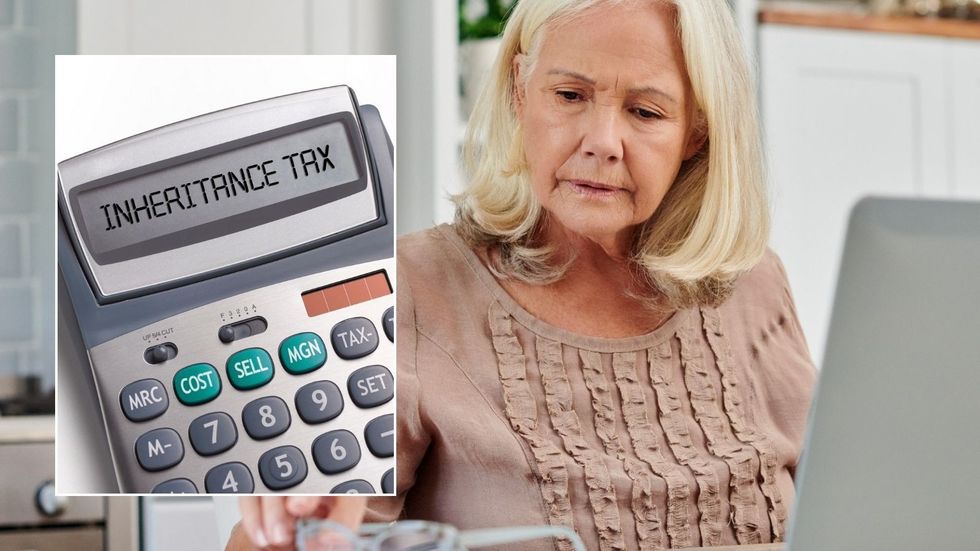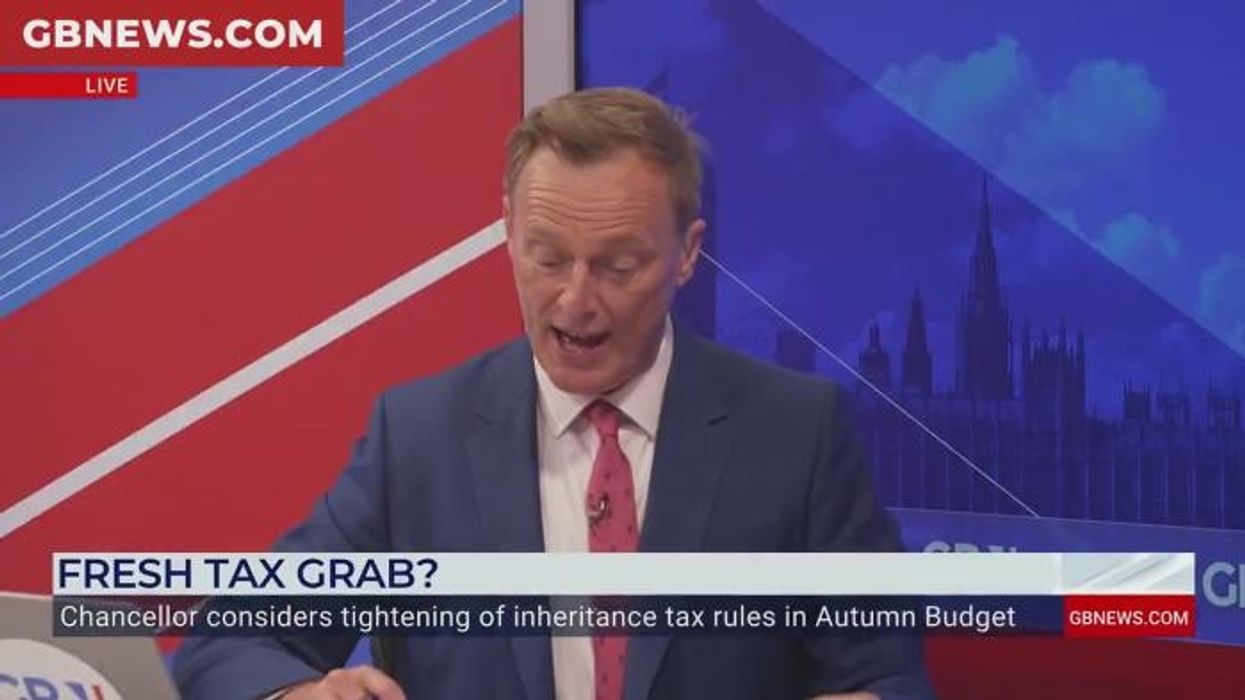Inheritance tax: 'Easiest ways' to cut your bill as HMRC rakes in £3.1billion in three months

Rising house prices and frozen tax thresholds mean more estates than ever are falling into the inheritance tax net
Don't Miss
Most Read
There are legal ways to cut the amount one's family pays in inheritance tax, but new figures show HMRC still raked in an extra £200million in July.
The sharp rise in receipts has reignited concern over the so-called death levy and how families can hold on to more of what they pass down.
Tax revenues from inheritance duties reached £3.1billion during the first four months of the current financial year, according to fresh data from HM Revenue and Customs. This represents a rise of £200million compared with the identical timeframe in 2024.
The figures demonstrate that death duties are climbing approximately 6.9 per cent above last year's levels, as calculated by Ian Dyall from wealth management company Evelyn Partners. This upward movement continues a pattern of growth that has persisted across recent years.
The frozen threshold of £325,000, unchanged since 2009, means more estates fall within the tax net as property values and other assets appreciate. Additional relief through the residential allowance can provide up to £175,000 extra, though this depends on meeting specific criteria.
Financial experts are highlighting several methods families can employ to minimise their exposure to death duties.
Mr Dyall said: "One of the easiest ways for families to reduce the threat of larger IHT bills is to gift during lifetime, and as the seven-year rule allows unlimited amounts to be transferred and possibly leave the estate altogether, this is the natural escape route that the Treasury might seek to block off."
Andrew Tully from Nucleus also emphasises that "advisers can help clients mitigate these taxes by setting up trusts and making use of gift allowances and the spousal exemption."
Annual gift allowances permit individuals to pass on assets without immediate tax consequences. Each tax year, individuals are entitled to an annual exemption that allows them to give away up to £3,000 in gifts without these being added to the value of their estate for inheritance tax purposes.
The £3,000 allowance can be given to a single recipient or divided between several people. Any unused portion of the exemption can be carried forward, but only into the following tax year.
 Pension experts report that savers are already modifying their financial behaviour ahead of the 2027 deadline | GETTY
Pension experts report that savers are already modifying their financial behaviour ahead of the 2027 deadline | GETTY The spousal exemption remains particularly valuable, allowing unlimited transfers between married partners or civil partners without triggering inheritance tax charges.
In addition to the annual exemption, people can also give smaller gifts without incurring inheritance tax. Gifts of up to £250 per person can be made to as many individuals as desired each tax year, provided no other allowance is used for the same recipient. Regular gifts from income, such as birthday or Christmas presents, are also exempt.
Special allowances apply to weddings and civil partnerships. Parents can give a tax-free gift of up to £5,000 to a child on their marriage, while grandparents and great-grandparents can give up to £2,500.
Gifts of up to £1,000 can be made to any other person. These allowances can be combined with others, for example, a parent may give a child both the £5,000 wedding gift allowance and use their £3,000 annual exemption in the same tax year, though the wedding allowance cannot be combined with the small gifts exemption.
 Britons are concerned about the rising tax burden | GETTY
Britons are concerned about the rising tax burden | GETTYThese strategies have become increasingly relevant as inheritance tax affects a growing number of households. Trusts offer a structured approach to transferring wealth whilst potentially reducing tax liabilities.
Professional guidance has become essential as the complexity of estate planning increases alongside rising property values across Britain.
The expansion of inheritance tax to more families stems from what experts describe as fiscal drag, where static allowances fail to keep pace with rising asset values.
The primary threshold has remained at £325,000 for over fifteen years, whilst property prices have surged across the UK. The residential allowance, phased in between 2017 and 2020, provides some relief but requires households to navigate specific eligibility rules.
Mr Tully of Nucleus observes that inheritance tax collections have surged by more than 50 per cent over the past five years. The Office for Budget Responsibility anticipates this growth will persist, making estate planning increasingly crucial for middle-class families.
 The Chancellor is facing difficult choices | GETTY
The Chancellor is facing difficult choices | GETTYFuture modifications to inheritance tax rules will significantly increase Government revenues, according to industry experts. Business and agricultural property relief restrictions take effect from April 2026, whilst pension assets will fall within estate calculations from April 2027.
Mr Dyall warns that wealthy families typically adjust their behaviour to minimise tax exposure, potentially reducing expected revenues. He suggests the Treasury might target the seven-year gifting rule, which currently permits unlimited transfers that could eventually exit the estate entirely.
However, he questions whether restricting gifts would prove counterproductive, noting that "funds gifted to younger people are more likely to be spent and fed back into the economy," potentially boosting VAT and stamp duty revenues instead.
More From GB News











